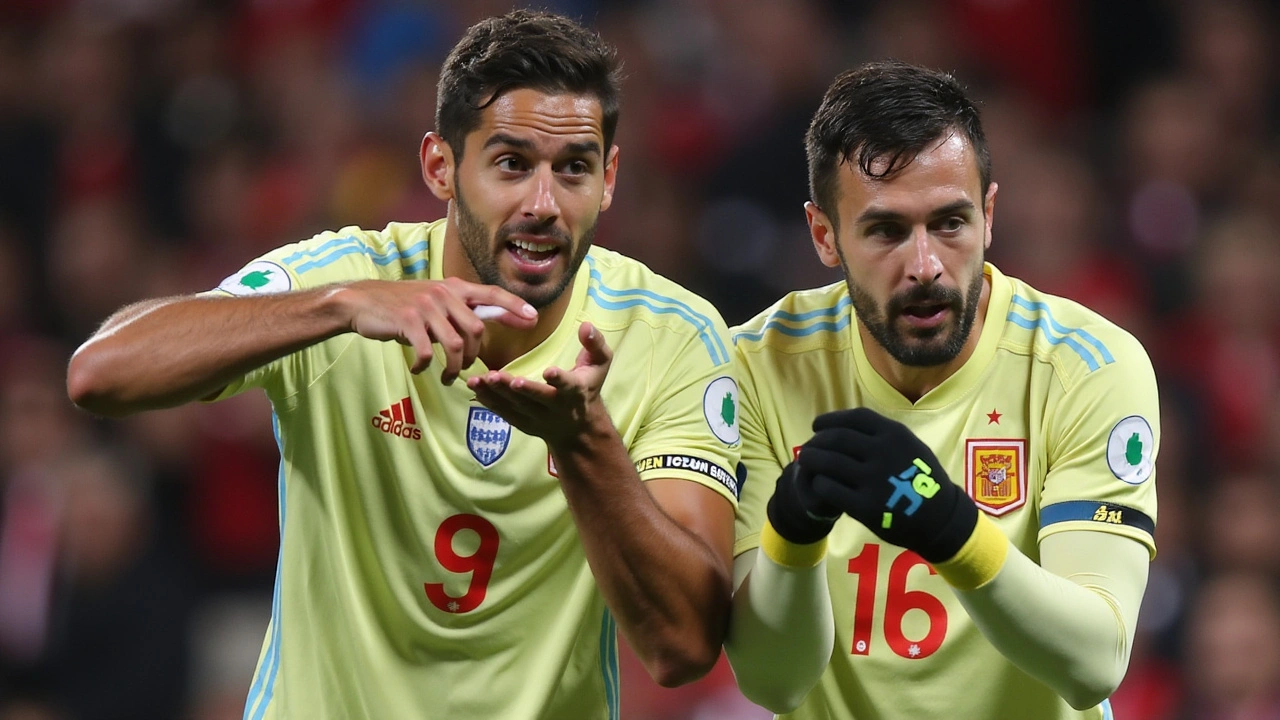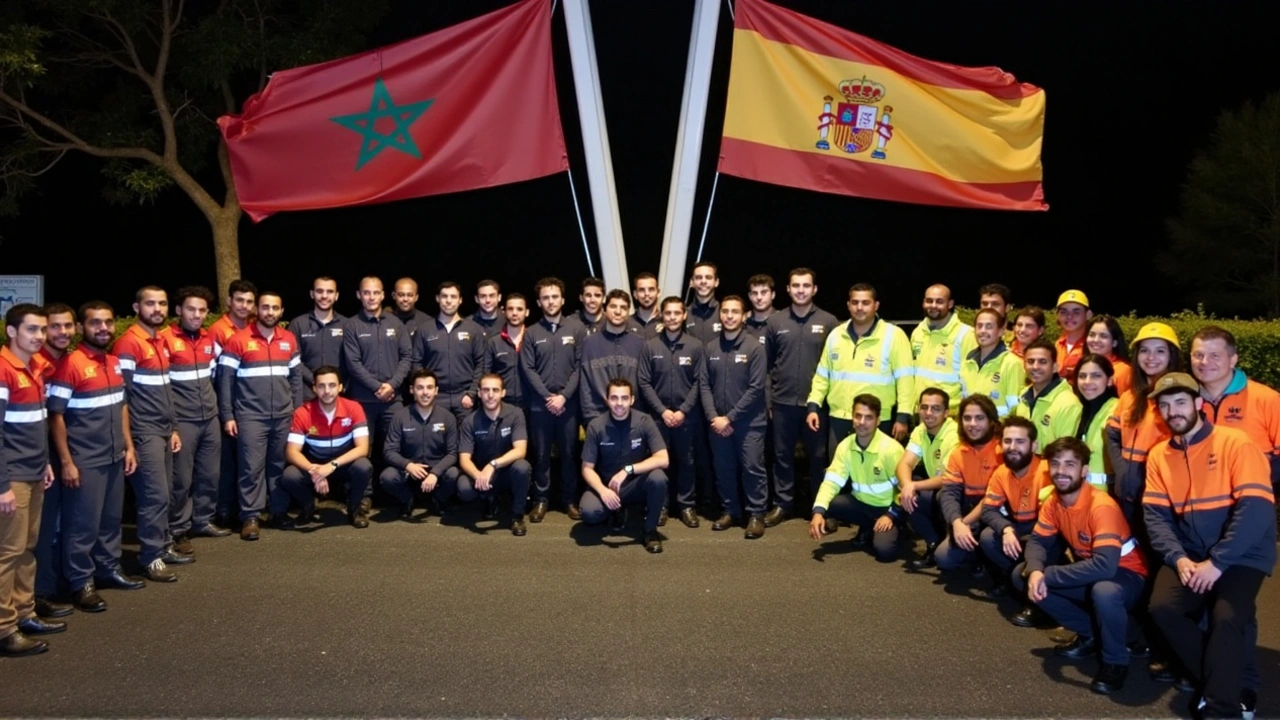Morocco's Quick Response to Spain's Tragedy
In recent weeks, the Valencia region in Spain has been grappling with severe flooding that has caused devastating damage. Amid this adversity, Morocco has emerged as a prominent supporter, extending a helping hand to its Spanish neighbors. Karima Benyaich, Morocco's ambassador to Spain, has articulated how this acts as a testament to the strength of the bilateral ties between the two nations. According to Benyaich, this aid is not just about emergency assistance; it symbolizes the profound and established solidarity that Morocco shares with Spain.
History of Complex Relations
Spain and Morocco share a long and intricate history, characterized by both cooperation and tension. Throughout the years, issues such as the Western Sahara dispute and territorial disagreements have periodically strained this relationship. However, it's noteworthy that such geopolitical complexities have not overshadowed the fundamental connections shared by these neighboring countries. The latest aid offered by Morocco serves as a reminder that regardless of past discord, moments of crisis bring out the underlying alliance forged over decades.
The Significance of Aid
Undoubtedly, the promptness with which Morocco responded to the flood crisis in Valencia highlights the importance it places on its relationship with Spain. By being among the first to step forward with assistance, Morocco has demonstrated a consistent commitment to standing in solidarity with Spain. This move is strategic, emphasizing the importance Morocco places on maintaining friendly and supportive relations with European nations such as Spain. For Morocco and Spain, this cooperation is more than diplomatic courtesy; it reinforces a partnership that's strategically significant for both regions.
Connections Beyond Diplomacy
What makes the aid even more relevant is the fact that it goes beyond simple diplomatic gestures. It intertwines with the broader context of both nations' economic and social exchanges. Recent developments, such as Spain's support for Morocco's Western Sahara Autonomy Proposal, have been pivotal. This shift not only underscores trust but also highlights mutual economic benefits that result from strong diplomatic ties. Trade agreements signed between the two have proven beneficial, bolstering respective economies and fostering a symbiotic relationship that transcends political hesitations.
Strengthening Strategic Partnerships
The collaboration over flood relief is emblematic of a larger strategic partnership that both countries are eager to maintain and expand. Such aid efforts illustrate far more than momentary assistance; they signify an active, living partnership that continues to adapt to the changing global scenario. The strategic importance of both nations is highlighted through joint efforts to tackle regional issues, making this partnership indispensable for both Europe and North Africa.

Future Prospects and Mutual Respect
Looking toward the future, the renewed spirit of cooperation set in motion by such recent gestures holds promising prospects. For Morocco and Spain, mutual respect and cooperative strategies seem to be stepping stones towards achieving regional stability and economic growth. The path taken by these two nations might inspire other countries to prioritize diplomacy and collaboration over disputes.
A Renewed Chapter
The aid that flowed from Morocco to Spain after the floods represents more than emergency assistance—it marks a renewed chapter in their diplomatic saga. This narrative continues to be written with actions rooted in collaboration, evolving from past complexities to a partnership that is equal parts strategic and sincere. As international relations unfold, the Moroccan-Spanish example serves as an intriguing model of neighbors choosing symbiosis over antagonism.






7 Comments
Morocco's flood help is a textbook example of neighborly PR.
Seeing Morocco rush in with supplies and rescue teams really tugs at the heartstrings 😊. It's refreshing when nations put humanity before politics, especially after the devastation in Valencia. The floodwaters might have shaken homes, but the solidarity shown here steadies spirits. Hoping the recovery is swift and the bond grows even stronger.
Indeed, the gesture transcends mere optics and reflects a deeper interdependence. When neighbors collaborate, they weave resilience into their shared future. The flood response is a microcosm of that larger tapestry.
It's fascinating, truly, how diplomatic narratives evolve; the aid saga showcases not only humanitarian concern, but also strategic foresight, and suggests that economic corridors may soon expand, especially with the recent trade agreements; this could usher in a new era of mutual benefit, where both nations leverage each other's strengths, and perhaps, set a precedent for regional cooperation that rivals any old rivalry.
Morocco's response was swift.
It sent personnel within days.
The aid included food and medical supplies.
Local Spanish authorities praised the effort.
Such coordination requires prior planning.
Both governments have established protocols.
The flood damage was extensive.
Thousands were displaced.
Rescue teams faced hazardous conditions.
International help eased the burden.
Morocco's presence boosted morale.
It also highlighted logistical capabilities.
The partnership reflects years of dialogue.
Economic ties have deepened alongside diplomacy.
Future collaborations will likely build on this foundation.
Let's cut the fluff-Morocco's move is a strategic power play, leveraging humanitarian aid as soft power to cement its foothold in European geopolitics. This isn't altruism; it's a calculated pivot to secure trade routes, influence policy, and tighten NATO peripheral dynamics. Nations that neglect such realpolitik risk being left in the dust.
Honestly, the whole narrative feels like a PR stunt orchestrated by both capitals. While the floods were tragic, using them as a stage to flaunt diplomatic warmth reeks of opportunism. The media loves a feel‑good story, but the underlying agenda shouldn't be ignored.